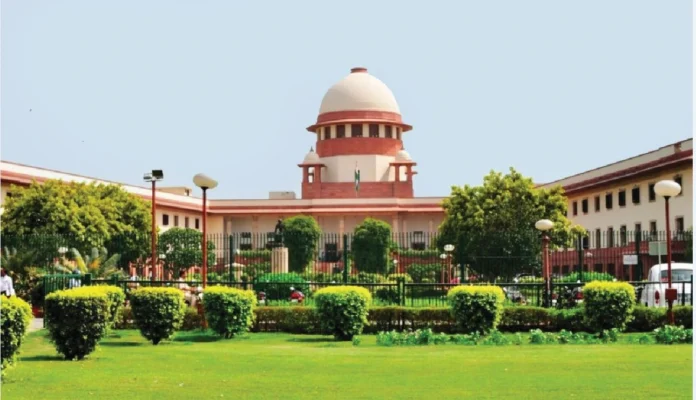The Supreme Court on Friday directed the Union government not to deport a Srinagar-based family to Pakistan before giving them a chance to prove their citizenship status.
The Bench of Justice Surya Kant and NK Singh ordered the Government of India to decide on this aspect at the earliest.
It further said that if the Central government decided to deport the family after the verification process and if the family was dissatisfied with the decision, it could approach the Jammu and Kashmir High Court for relief.
Clarifying that this verdict should not be treated as a precedent, the Bench said it was delivering the judgment in the wake of peculiar facts and circumstances of this case.
The Apex Court passed the order on a petition filed by a Srinagar-based family, comprising a married couple and their four children, which faced the risk of being deported from India to Pakistan in the wake of the April 22 Pahalgam massacre.
Following the terror attack in Pahalgam of Jammu and Kashmir, which claimed 26 lives, tensions rose between India and Pakistan. The Government of India decided to suspend visa services to Pakistani nationals. All Pakistani nationals were directed to leave India by April 27.
Representing the petitioners, Advocate Nanda Kishore today apprised the Bench that despite being Indian nationals who held government identification, including Aadhaar cards, PAN cards and voter ID, the whole family was arrested.
Advocate Kishore further submitted that while one of the petitioners worked in Bangalore, the rest resided in Srinagar. One of the family members had Pakistani roots as he was born there, however, he surrendered his Pakistani passport long back, noted the lawyer.
The Apex Court observed that besides the human element, there were several issues that needed to be verified.
Since the factual plea needed verification, the Bench said it was disposing of the same without expressing anything on merits, with a direction to the authorities to verify these documents and any other fact that may be brought to their notice.
It further said that there were several factual aspects in the case, which this Court was not in a position to examine.
Appearing for the Union of India, Solicitor General Tushar Mehta contended that the petitioners should approach the appropriate government authorities


